28 August 2025
Business View
June 3, 2025
NAB Business Pulse: June 2025
Building strong relationships has never been more important. For many businesses, that means focusing on local connections and being proactive. Here’s how some of our customers are leading the way.
By Julie Rynski
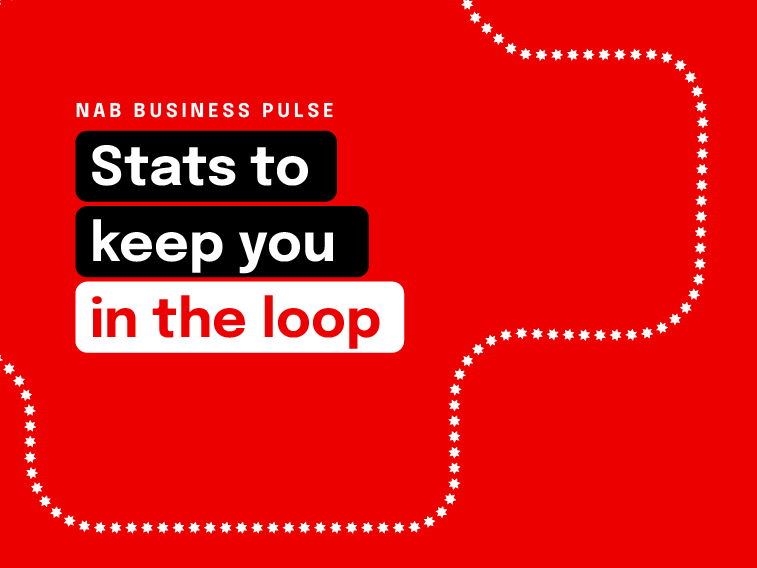
One of the best parts of my job is getting the opportunity to meet a diverse range of business owners. They are an inspiring group, and more often than not, I walk away with a new insight or piece of wisdom.
So, what am I hearing right now amid US tariff disruptions and continued geopolitical tensions?
Increasingly, it’s this concept of ‘local’ that stands out – not just because businesses want to support their communities, but because there’s a growing understanding that, in many ways, we’re on our own as a nation and Australians need to come together.
In practice, it means that if a business has the option to buy from its local shop or provider, it will choose local. It’s all about connecting – building robust relationships that can weather whatever challenges come our way.
Making relationships count
It’s an approach that holds considerable merit, particularly in the environment in which we now find ourselves.
Southern Cross Truck Rentals, for example, has always put relationships first and it’s a terrific business. Founded in Camden on Sydney’s outskirts in 2003 with a single truck, a van and a couple of utes, it’s easy to see why they’ve done so well for themselves.
Recently, the founder shared a couple of insights about his way of doing business that really resonated with me, particularly at a time when strong, lasting relationships are more important than ever.
The first was that he still buys his trucks from the same person who gave him a go when he first started out – the guy that knew he didn’t have a whole lot of money and helped him anyway.
The second, which I found particularly powerful, was that he doesn’t say yes to every customer. If someone comes in and says they can get it cheaper down the road, he doesn’t play that game. His focus is squarely on long-term relationships.
Giving it your all
Essentially, Southern Cross Truck Rentals has been built on knowing what good business looks like.
It’s the same for Western Sydney-based Hugos Chocolates. Again, founder Costa Konstantopoulos has done incredibly well for himself. Having bought the chocolate-making equipment on a whim when he’d seen it in a Homebush property he was looking to buy in 2010, his business is now well placed to continue to thrive, no matter the challenges the world throws our way.
Costa also said something recently that really stuck with me. At a time when cocoa prices were skyrocketing, he was complaining to his accountant about rising costs. The response was simple but powerful: ‘Mate, it is what it is. You’re in the chocolate business – complaining about the price of cocoa won’t change it.’
That made a huge difference to Costa’s mindset. Ultimately, he had to choose whether he was in the chocolate business or not. If he was, then he had to manage the fluctuations in cocoa prices. After all, what business doesn’t face some level of volatility?
Being proactive
That’s not to suggest you just accept what comes your way.
While there’s good reason to believe Australia’s fortunes might be turning a corner this year – supported by our key data and insights this month – the most resilient businesses will always be those that prepare for the unexpected and focus on managing the factors within their control.
That includes putting proactive strategies in place to safeguard themselves.
Take one of our customers that’s a dessert franchise. They’ve also recently faced soaring cocoa prices due to supply constraints in South America. However, they remain in a strong position. They’ve worked with NAB’s Trade and Working Capital and Commodity specialists to secure a higher volume of cocoa at a more favourable price. This has enabled them to maintain their current pricing – and not scramble around to find alternative suppliers.
That, in turn, has supported consistency across their network and helped to preserve brand trust.
Building loyalty
Once again, the overriding focus here was to preserve their relationships.
They’re far from alone. In fact, NAB research shows that two-thirds (67%) of business are maintaining their customer loyalty, despite a rise in expectations.
We’re not surprised. Sure, economic upheaval and technological disruption have made today’s customers more price-conscious and in search of greater flexibility. But the other side of the coin is that those businesses offering an improved customer experience, and discounts where possible, are being rewarded with a faithful following and repeat spending.
A relationship-based recovery
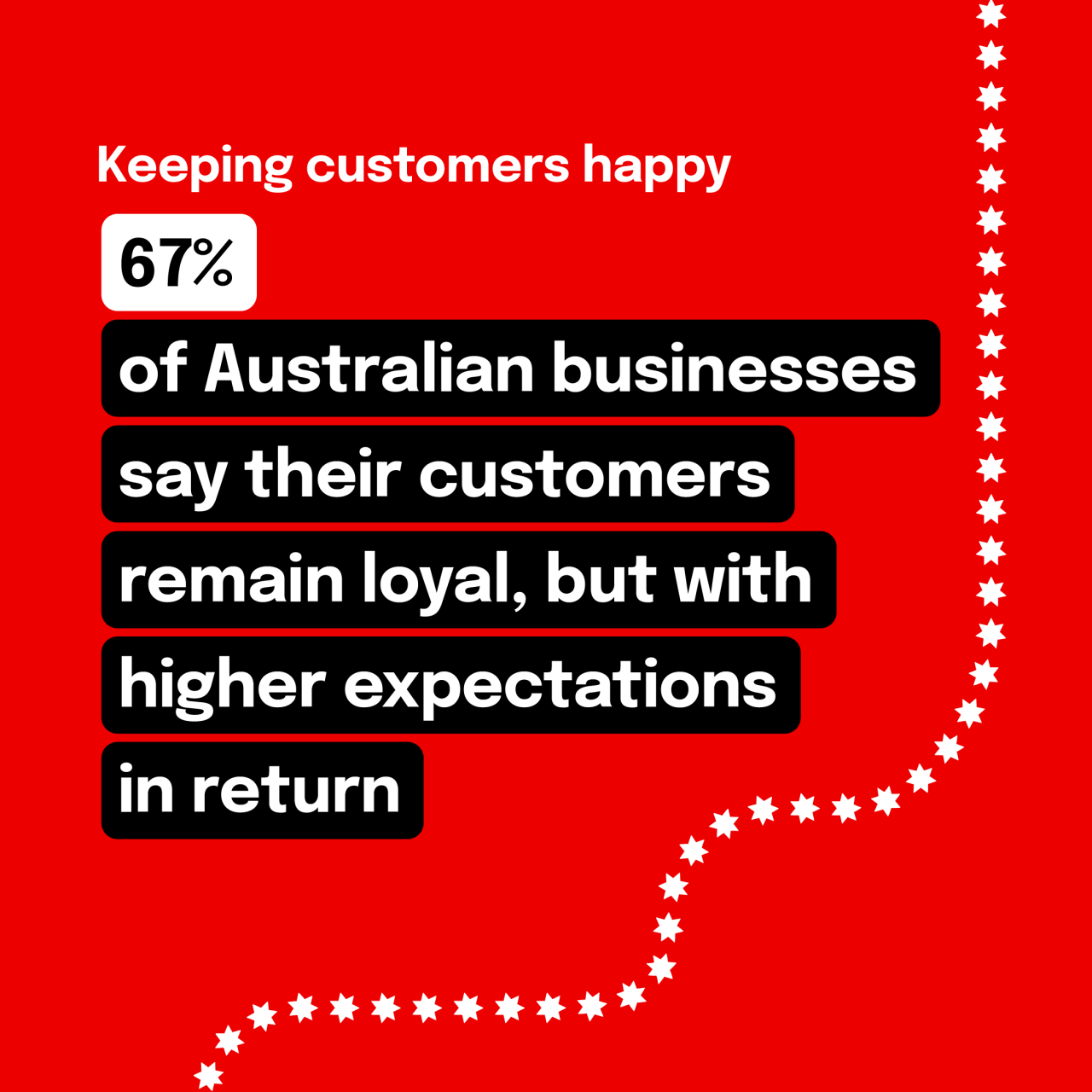
Two-thirds (67%) of businesses say their customers are still loyal after years of new ways of doing business. The pandemic saw an uplift in willingness to break relationships, resulting in loyalty disruption for many businesses but customer loyalty is not dead. The catch, however, is that customers have a growing list of expectations of businesses including greater flexibility over how they shop and greater discounts on essential items while they remain more price conscious.
A resilient economy
NAB Group Chief Economist Sally Auld has reassured businesses about the economic outlook. “It might feel uncertain, but we think Australians are going to be relatively okay.” NAB CEO Andrew Irvine is also upbeat: “I think households and businesses should start to feel that they’re coming out of what has been a really difficult couple of years.”
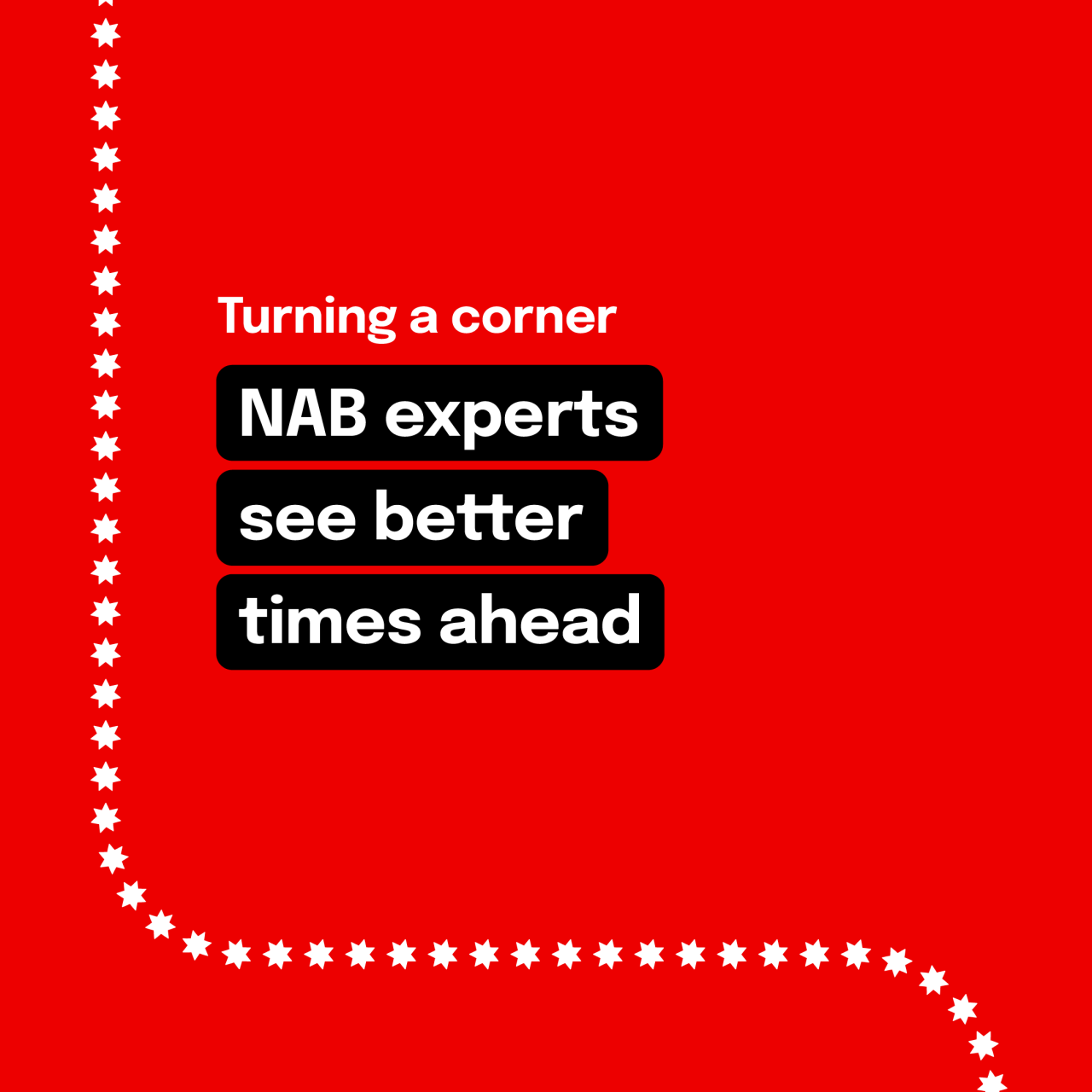
Rates back on track
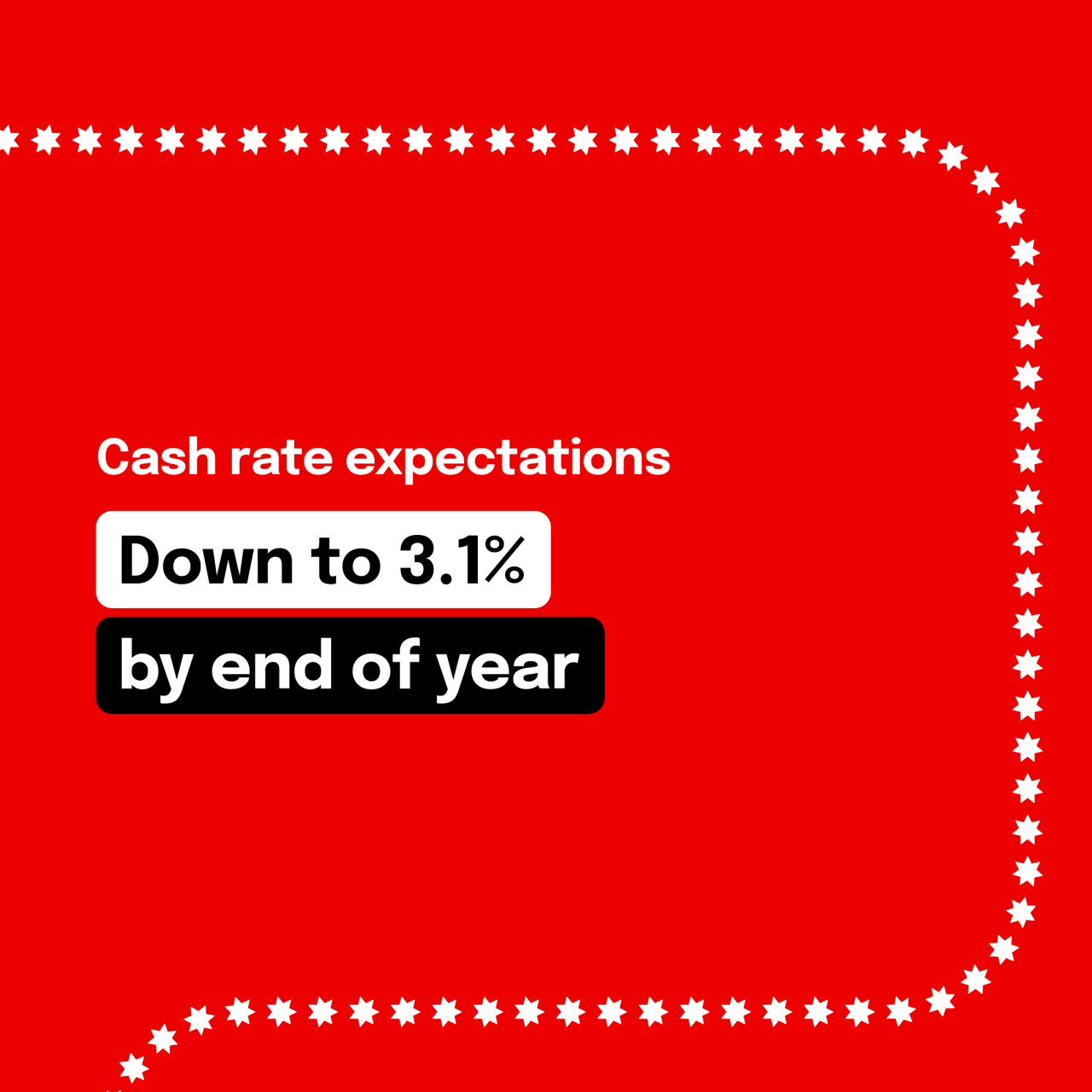
NAB now expects the Reserve Bank to cut by 25bp in July, August and November, taking the cash rate to 3.1% by year end. We have pared the pace and depth of easing relative to our previous forecast in recognition that the headwinds from the global backdrop, while still material, have eased.
Property on the rise
Housing market sentiment rallied in the March quarter as national house price growth accelerated. February’s rate cut is likely to have also factored. Overall, the NAB Residential Property Index rose to a well above average +40, after moving lower in the previous three quarters.
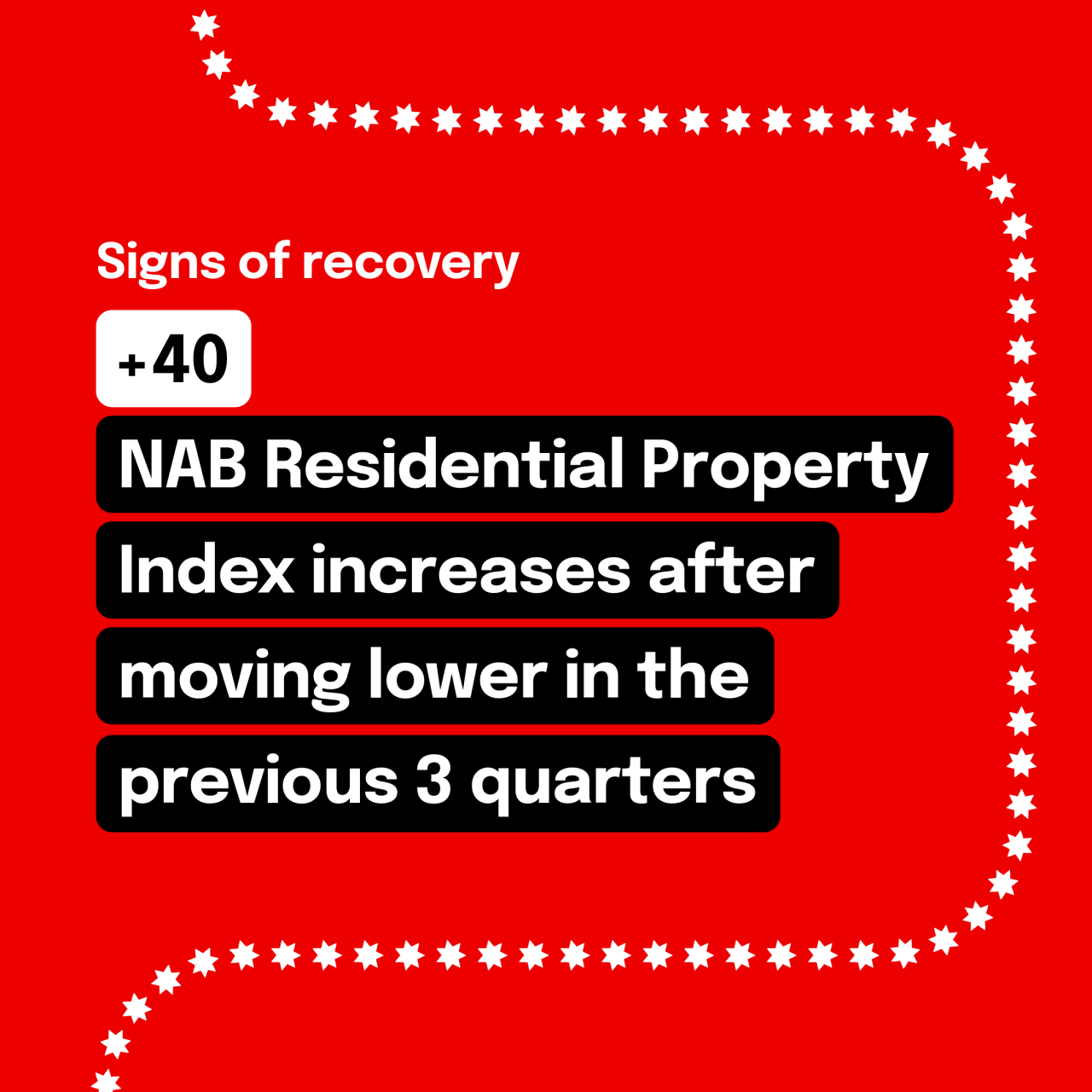
US economy: down but not out
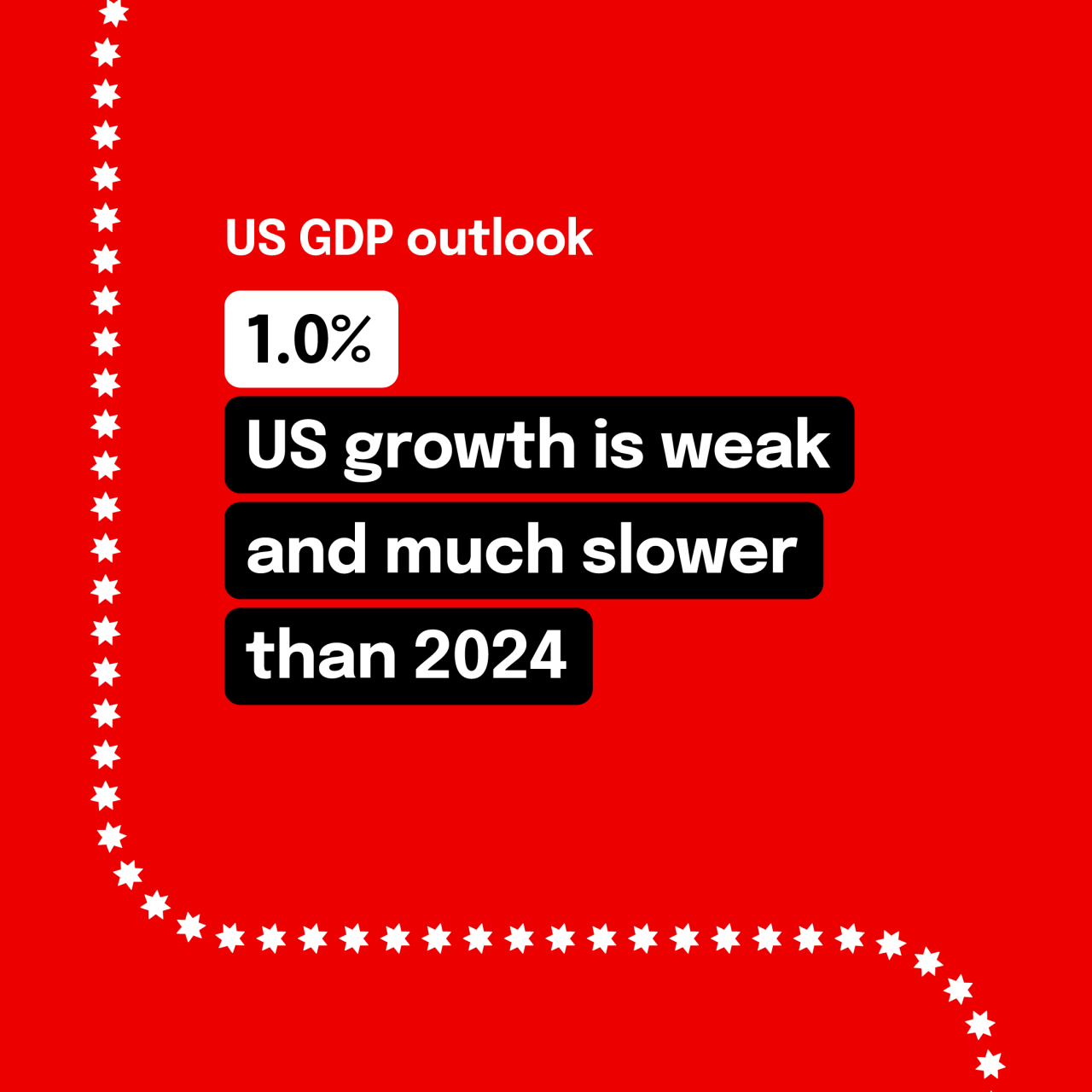
We have lifted our US economic growth expectations for 2025 (up 0.4ppts to 1.0% on a year-ended basis) following the US-China tariff agreement. [But] uncertainty remains, and the US economy is still facing a major increase in tariffs (not only on China but also the rest of the world).
Business Business insights Business View
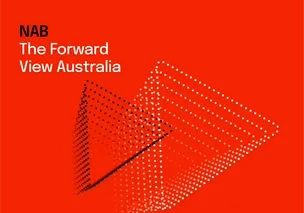
The Forward View – Australia: August 2025
INSIGHT
21 August 2025

